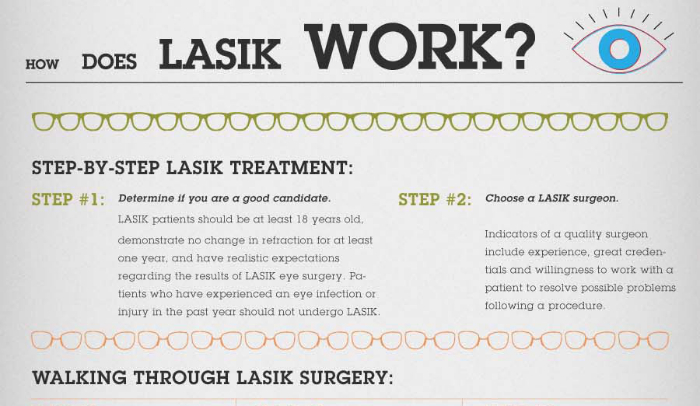Is SMILE Eye Surgery The Right Choice For You? Vital Considerations And Insights
Is SMILE Eye Surgery The Right Choice For You? Vital Considerations And Insights
Blog Article
Material By-Diaz Cooley
If you're considering SMILE eye surgery, contemplate this: are you prepared to welcome potential visual flexibility, or does the idea of any kind of threats make you think twice? Your choice will depend upon a mindful balance of evaluating the advantages versus the unpredictabilities. It's vital to delve much deeper right into the nuances of SMILE surgical treatment to make an informed option that straightens with your visual goals.
Recognizing SMILE Eye Surgery
When thinking about SMILE Eye Surgical procedure, it is essential to comprehend the treatment and its benefits. SMILE, which stands for Tiny Incision Lenticule Removal, is a minimally invasive laser eye surgical treatment that fixes usual vision issues like nearsightedness (nearsightedness).
During the procedure, your eye doctor will utilize a femtosecond laser to develop a small cut in your cornea. With this laceration, a small disc of cells called a lenticule is gotten rid of, reshaping the cornea and remedying your vision.
One of the vital benefits of SMILE Eye Surgery is its fast healing time. Many people experience boosted vision within a day or two after the treatment, with marginal discomfort.
Additionally, SMILE is understood for its high success price in supplying lasting vision adjustment. Unlike LASIK, SMILE does not require the production of a flap in the cornea, reducing the danger of issues and permitting a much more stable corneal framework post-surgery.
Understanding the procedure and its advantages is essential when taking into consideration SMILE Eye Surgery for vision correction.
Advantages and disadvantages of SMILE
Thinking About SMILE Eye Surgery for vision correction comes with numerous benefits and possible downsides.
was cataract surgery of the primary pros of SMILE is its minimally invasive nature, as it involves a little cut and usually causes fast recuperation times. https://videooflasiksurgery42097.creacionblog.com/29142242/take-advantage-of-professional-suggestions-on-post-lasik-eye-like-boost-your-healing-trip-and-optimize-long-term-vision-wellness is additionally recognized for triggering marginal pain and dry eye signs and symptoms post-surgery compared to other vision improvement methods. Furthermore, SMILE has actually been revealed to offer outstanding aesthetic end results, with lots of people attaining 20/20 vision or better.
On the other hand, a prospective disadvantage of SMILE is that it might not appropriate for people with serious refractive mistakes, as the therapy array is somewhat minimal contrasted to LASIK. One more consideration is that the understanding curve for cosmetic surgeons executing SMILE can influence the schedule of experienced suppliers in specific locations.
It is very important to weigh these advantages and disadvantages carefully when making a decision if SMILE is the appropriate choice for your vision adjustment requirements.
Identifying Qualification for SMILE
To determine if you're qualified for SMILE eye surgical treatment, your eye doctor will certainly carry out a detailed examination of your eye wellness and vision needs. Throughout this analysis, aspects such as the security of your vision prescription, the thickness of your cornea, and the total health and wellness of your eyes will be analyzed.
Usually, prospects for SMILE more than 22 years old, have a secure vision prescription for at least a year, and have healthy corneas without problems like keratoconus.
Your ophthalmologist will additionally consider your overall eye health, any kind of existing eye conditions, and your lifestyle requires to determine if SMILE is the right selection for you. It's necessary to connect any type of certain visual needs or issues you might have during this analysis to make certain that the therapy straightens with your assumptions.
If you aren't eligible for SMILE, your ophthalmologist may advise alternative vision adjustment options that better suit your private demands and eye health condition.
Verdict
Inevitably, choosing whether SMILE eye surgery is right for you requires mindful factor to consider of your individual eye health and visual needs. Consult with your optometrist to establish your qualification for the treatment and weigh the potential benefits and drawbacks. Remember to communicate any issues or questions you may have throughout the evaluation process to make an enlightened choice concerning your vision modification choices.
